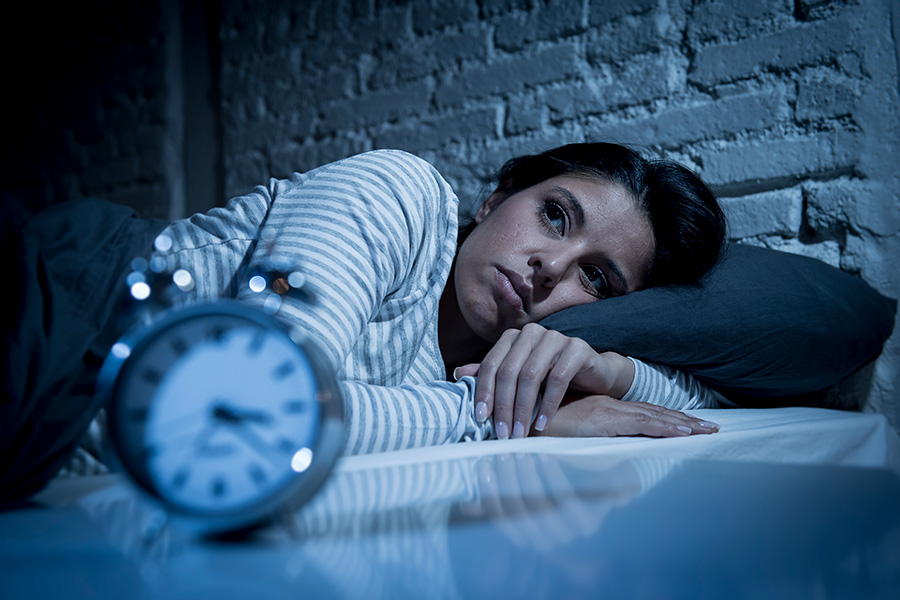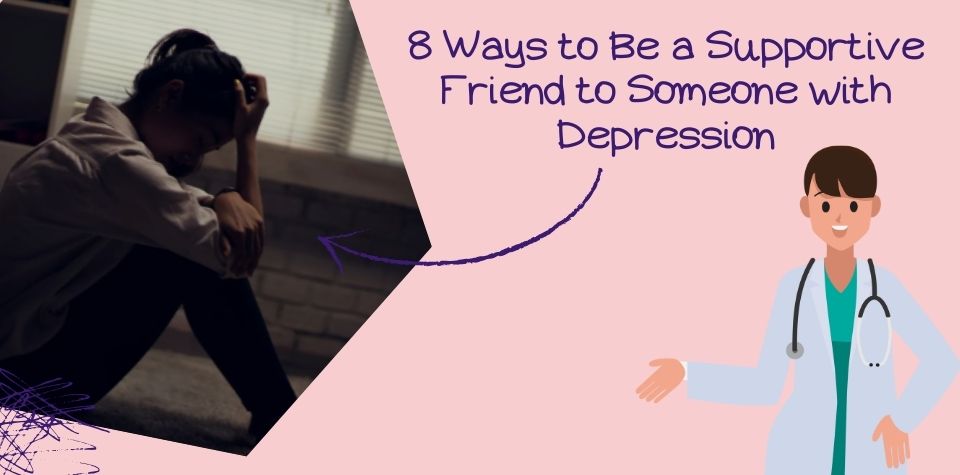Millions of people worldwide are collectively looking for the answer to how to beat Insomnia. Even after thousands of medical researches, no treatment has a complete solution against this sleep disorder.
Let’s explore some ways to beat Insomnia without severe consequences. Also, understand the basics of sleep disorders and their causes.
Insomnia Basics
Insomnia is a common issue that makes it difficult to fall or continue a good night’s sleep. It may also cause you to wake up too early in the morning and not be able to get back to sleep. Insomnia may impact your mood by draining your energy. It also may affect your quality of life, health, and work performance.
Before exploring the ways to beat Insomnia, it is crucial to understand the types of Insomnia.
Short term insomnia
Sleep requirements vary from person to person, but most people need 7-9 hours of sleep at night. Due to the distressing event or stress, short-term Insomnia may occur in a few adults that may last for a few weeks.
Long term insomnia
On the other hand, long-term Insomnia is known as chronic Insomnia. It stays for three months or longer. This long-term sleep disorder needs to be noticed and given proper medical treatment. If left untreated, long-term insomnia can result in some other emotional and physical health issues.
Some Common Symptoms of Insomnia
Understanding the basic symptoms of insomnia is the first step in beating insomnia disorder. Difficulty while sleeping is the primary symptom of this condition. However, some other symptoms may include;
- Difficulty in falling asleep at night;
- Waking up during the whole night;
- Waking up too early in the morning or the middle of the night;
- Feeling drowsy or tired during the day;
- Feeling anxious, cranky, or depressed;
- Having difficulty concentrating, paying attention, or remembering;
- Having continuous worries about sleep, etc.
If you have any of these symptoms, you must consult an experienced healthcare expert. They may prescribe you some sleep aid or other treatment to manage your condition. However, consuming sleep medications is never a good idea to beat Insomnia. Hypnotic drugs may lead to addiction, overdose, and even death.
Types of Insomnia
There are five major types of Insomnia
- Acute Insomnia
- Chronic Insomnia
- Onset insomnia
- Maintenance insomnia
- Behavioral Insomnia in Childhood
Acute Insomnia
It is the most common form of Insomnia. Acute Insomnia is short-term and stays for a few days to a month. This sleep difficulty occurs due to a change in stressful events or environment. Therefore, it is also known as adjustment insomnia.
A few common reasons for acute Insomnia are as follows;
- Extreme light or noise;
- Unfamiliarity and environmental changes;
- New college, school, or job;
- Uncomfortable mattress or bed;
- Examinations or work deadlines;
- Death of a near one or relative;
- Physical issues such as pain or
- Difficulties in a relationship or breakup.
Chronic Insomnia
Chronic Insomnia is just the opposite of acute Insomnia. As mentioned, acute Insomnia is short-term. On the other hand, chronic Insomnia is long-term. It is said to be chronic if you experience issues sleeping at least three days a week for at least a month.
Chronic Insomnia can be divided into two categories: primary and secondary. Primary chronic Insomnia is also known as idiopathic Insomnia, as there is no particular reason. Secondary chronic Insomnia is also known as comorbid Insomnia.
Compared to primary Insomnia, comorbid Insomnia is more common and occurs due to other underlying medical issues [comorbidities].
Here are the major causes of chronic Insomnia
- Chronic medical issues such as diabetes, acid reflux disease, thyroid, and chronic pain.
- Medications such as antihistamines, antihypertensive [BP drugs], antidepressants, anti-epileptic drugs, and chemotherapy.
- Sinus allergies and nasal block
- Age [Over time, Insomnia becomes more common]
- Anxiety and stress
- Chronic discomfort
- Lifestyle factors include irregular naps and sleep timings and rotating shift work.
Onset insomnia
Onset insomnia may cause trouble initiating sleep. It may be either short-term or chronic.
Few onset insomnia symptoms may include;
- Irritability, mood swings;
- Depression, anxiety;
- Loss of coordination;
- Loss of libido, etc.
Maintenance insomnia
Maintenance insomnia occurs when you have difficulty staying asleep or wake up too early and face difficulty returning to sleep. It may be caused by chronic medical issues or psychological issues such as stress, depression, or anxiety.
A few causes of maintenance insomnia are
- Restless leg syndrome
- Asthma and other breathing issues
- Acid reflux disease, chronic pain
- Sinus allergies and nose block
Behavioral Insomnia in childhood
BIC or behavioral Insomnia of childhood may generally be treated with appropriate behavioral therapy. BIC has three subtypes;
- BIC sleep-onset- It may generally be treated or managed with a few behavioral changes, including learning relaxation techniques or self-soothing and creating a healthy sleep routine.
- BIC limit setting- It happens when a child refuses to go to bed on time.
- BIC combined type- It is a combination of both BIC sleep onset and BIC limit setting.
Basic Causes of Insomnia
Common causes of long-term Insomnia may include;
Stress- Concerns about office, health, school, family, or money may keep your mind active at night, making it difficult to fall asleep. Stressful life events such as an illness, breakup, divorce, or death of a close one also may lead to Insomnia.
Medical issues- Your physical health may impact your ability to sleep. This includes temporary illnesses like injuries or minor infections and chronic illnesses such as Parkinson’s disease or acid reflux.
Overeating late in the evening- If you have a light snack before bedtime, it is alright. However, overeating may cause you to feel uncomfortable while sleeping or lying in bed. Many people may face heartburn. It occurs when stomach acid backs up into the esophagus, which generally carries food from your mouth to your stomach.
Heartburn may cause difficulty falling asleep and keep you awake.
Mental health issues- In a few cases, anxiety disorders, such as post-traumatic stress disorder, may affect your sleep. If you wake up too early, it can be a symptom of depression. Insomnia generally happens with other mental health issues.
Medicines- As discussed earlier, many prescription medicines, such as those for BP or asthma or other antidepressants, may interrupt sleep. Many drugs available without a prescription, such as painkillers, cold or allergy medicines, and weight loss products, may also disrupt sleep.
Nicotine, caffeine, and alcohol- Tea, cola, coffee, and other caffeine-containing drinks may prevent you from falling asleep at night. You must avoid consuming them late at night or before going to sleep.
Nicotine found in tobacco products is yet another stimulant that can disrupt the ability to fall asleep at night.
Insomnia and pregnancy
Pregnancy is one of the most common reasons for Insomnia. During pregnancy, changes in your body may cause a condition known as sleep deprivation. It takes a toll on how you work and feel throughout the day. You can face issues in falling asleep.
Although you are sleeping, the duration and quality of sleep can be less than what you are used to.
If you lose sleep quality, it won’t be good for your health. Sleep deprivation is concerning during pregnancy when you require more sleep than usual to recharge.
There are the best natural sleep aids and other medications to treat Insomnia during pregnancy. We will talk about them in further lines.
Insomnia in children
Children frequently have sleep issues, especially in their early years. Sleepwalking, bedwetting, Insomnia, night terrors, and bedtime fears can all interfere with your child’s regular sleep schedule.
While some kids struggle to fall asleep when their parents aren’t there, others might not feel exhausted by the time it’s time for them to go to bed.
Some kids may often wake up in the middle of the night, suddenly alert, shift positions, or awaken their parents.
Because of this, having your sleep interrupted on a regular basis is quite irritating.
If the same kind of issue occurs in your life, you may consult an experienced healthcare expert. They may suggest the best treatment for Insomnia in your kids.
Insomnia in older adulthood
Changes in routines, behaviors, prescriptions, and general health are common as people age. These may raise your chance of getting a sleep disorder like Insomnia.
For instance, a person may develop a new underlying condition, take new drugs, and change their lifestyle following retirement, all of which may put them at a higher chance of developing Insomnia.
Additionally, research indicates that as a person ages, their circadian rhythm may alter. Due to these modifications, an older adult may notice a drop in their typical amount of sleep each night to five to seven hours, which may eventually plateau around the age of sixty.
Treating Insomnia or ways to beat Insomnia
Let’s explore some clinically trusted and applied ways to beat Insomnia.
CBT or cognitive-behavioral therapy
Sleep hygiene education- This covers actions that interfere with sleep, such as using alcohol or coffee, listening to loud noises outside, setting the temperature too high or too low, and watching TV in bed.
Stimulus-control therapy- This functions by associating the bed with only drowsiness and when it’s time to sleep.
Relaxation therapy and cognitive therapy- These include practicing relaxation techniques, meditation, stress and anxiety reduction, and instilling healthy sleep beliefs. Acupressure and massage therapy also benefit pain management and relaxation.
Sleep restriction therapy– This is based on the idea that spending too much time in bed can cause Insomnia. As such, individuals are recommended to sleep at most five to seven hours per night.
Medications and supplements to manage Insomnia-
Melatonin- A synthetic form of melatonin, which your body naturally produces to control your sleep-wake cycle, is available over the counter. The body naturally produces the most melatonin at night. Studies have indicated that melatonin may be helpful for some types of sleep disorders. However, consuming drugs is never a safe way to beat Insomnia.
Valerian—Valerian is an herbal supplement that seems to act on particular receptors in the user’s brain to slow down the nervous system and induce sleep, although exactly how it functions is unclear.
If you seek the best natural sleep aid, consider Valerian as an effective solution.
Chamomile- For decades, chamomile has been used as a popular herbal tea due to its relaxing effects. Before going to bed, chamomile tea may help lower anxiety and encourage relaxation, which will facilitate falling asleep.
CBD- A substance called cannabidiol (CBD) is present in cannabis plants and has grown in popularity due to its possible medical benefits. Its medical uses include lowering anxiety and promoting relaxation. Some people discover that consuming CBD products, such as oil, before bed enhances the quality of their sleep.
US CDC Alert: Check Risk Factors and Treatment of Meningitis
Routine Setting to Beat Insomnia
You may prevent Insomnia by following the steps below-
Maintain a regular sleep schedule- Even on weekends and holidays, you should always go to bed and wake up at the same time. If you are consistent with your sleeping schedule, it helps to manage the internal clock and promotes better sleep quality.
Create a soothing bedtime routine- Before going to bed, you may create a soothing bedtime routine. This may include activities such as reading a novel or book, taking a warm bath, practicing relaxation [mindful] techniques such as deep breathing or meditation, or listening to soothing music.
Stay active—Regular physical activity may help improve sleep quality, but you should avoid exercise close to bedtime. Exercising close to sleeping time may be stimulating and make it harder to fall asleep.
Watch your diet- You should not consume heavy meals, excessive fluids, or spicy foods close to bedtime. These foods may cause discomfort and disrupt sleep. You may consume light snacks if you are hungry before bed.
Manage anxiety and stress- Stress and anxiety may cause Insomnia and make you awake late at night. It would help if you practiced stress reduction techniques such as yoga, meditation, or progressive muscle relaxation, which may help calm your mind and body before sleeping.
Seek medical help if required- If you are consistently facing trouble sleeping after following these strategies, you must seek urgent medical help. By consulting a sleep expert or healthcare professional, you may identify the major cause of your Insomnia. They may suggest a suitable sleeping aid for Insomnia.
Also read: All You Need to Know About Bird Flu or Avian Influenza












One thought on “How to Beat Insomnia- Most Effective Strategies”